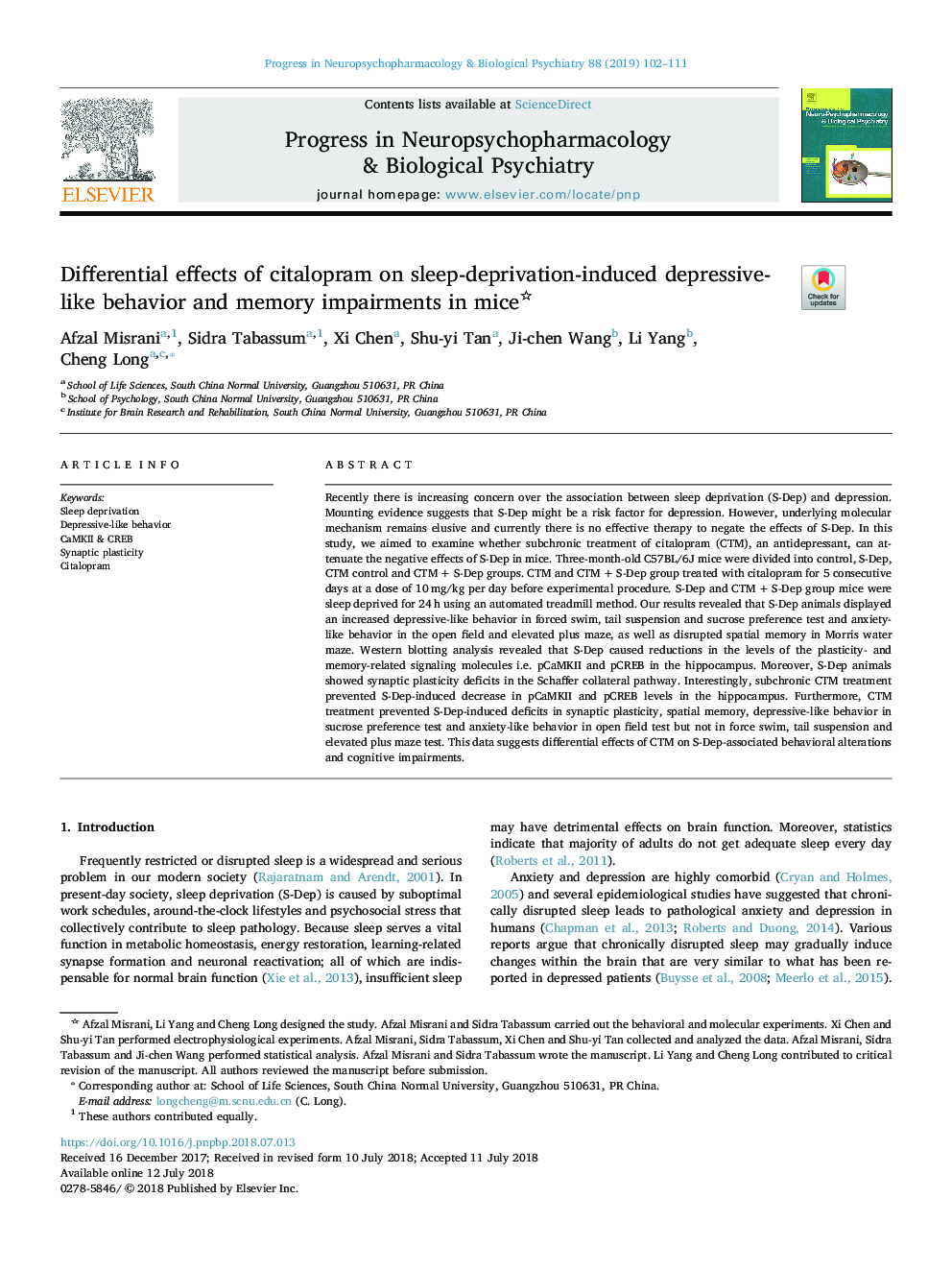| Article ID | Journal | Published Year | Pages | File Type |
|---|---|---|---|---|
| 8537128 | Progress in Neuro-Psychopharmacology and Biological Psychiatry | 2019 | 10 Pages |
Abstract
Recently there is increasing concern over the association between sleep deprivation (S-Dep) and depression. Mounting evidence suggests that S-Dep might be a risk factor for depression. However, underlying molecular mechanism remains elusive and currently there is no effective therapy to negate the effects of S-Dep. In this study, we aimed to examine whether subchronic treatment of citalopram (CTM), an antidepressant, can attenuate the negative effects of S-Dep in mice. Three-month-old C57BL/6J mice were divided into control, S-Dep, CTM control and CTMâ¯+â¯S-Dep groups. CTM and CTMâ¯+â¯S-Dep group treated with citalopram for 5 consecutive days at a dose of 10â¯mg/kg per day before experimental procedure. S-Dep and CTMâ¯+â¯S-Dep group mice were sleep deprived for 24â¯h using an automated treadmill method. Our results revealed that S-Dep animals displayed an increased depressive-like behavior in forced swim, tail suspension and sucrose preference test and anxiety-like behavior in the open field and elevated plus maze, as well as disrupted spatial memory in Morris water maze. Western blotting analysis revealed that S-Dep caused reductions in the levels of the plasticity- and memory-related signaling molecules i.e. pCaMKII and pCREB in the hippocampus. Moreover, S-Dep animals showed synaptic plasticity deficits in the Schaffer collateral pathway. Interestingly, subchronic CTM treatment prevented S-Dep-induced decrease in pCaMKII and pCREB levels in the hippocampus. Furthermore, CTM treatment prevented S-Dep-induced deficits in synaptic plasticity, spatial memory, depressive-like behavior in sucrose preference test and anxiety-like behavior in open field test but not in force swim, tail suspension and elevated plus maze test. This data suggests differential effects of CTM on S-Dep-associated behavioral alterations and cognitive impairments.
Related Topics
Life Sciences
Neuroscience
Biological Psychiatry
Authors
Afzal Misrani, Sidra Tabassum, Xi Chen, Shu-yi Tan, Ji-chen Wang, Li Yang, Cheng Long,
